The Dawn of Everything: A New History of Humanity
By: David Graeber
-
Rs 3,595.50
- Rs 3,995.00
- 10%
You save Rs 399.50.
Due to constant currency fluctuation, prices are subject to change with or without notice.
'Pacey and potentially revolutionary' Sunday Times
'Iconoclastic and irreverent ... an exhilarating read' The Guardian
'This is not a book. This is an intellectual feast' Nassim Nicholas Taleb
For generations, our remote ancestors have been cast as primitive and childlike - either free and equal, or thuggish and warlike. Civilization, we are told, could be achieved only by sacrificing those original freedoms or, alternatively, by taming our baser instincts. David Graeber and David Wengrow show how such theories first emerged in the eighteenth century as a reaction to indigenous critiques of European society, and why they are wrong. In doing so, they overturn our view of human history, including the origins of farming, property, cities, democracy, slavery and civilization itself.
Drawing on path-breaking research in archaeology and anthropology, the authors show how history becomes a far more interesting place once we begin to see what's really there. If humans did not spend 95 per cent of their evolutionary past in tiny bands of hunter-gatherers, what were they doing all that time? If agriculture, and cities, did not mean a plunge into hierarchy and domination, then what kinds of social and economic organization did they lead to? The answers are often unexpected, and suggest that the course of history may be less set in stone, and more full of playful possibilities than we tend to assume.
The Dawn of Everything fundamentally transforms our understanding of the human past and offers a path toward imagining new forms of freedom, new ways of organizing society. This is a monumental book of formidable intellectual range, animated by curiosity, moral vision and faith in the power of direct action.
'Fascinating, thought-provoking, groundbreaking. A book that will generate debate for years to come' Rutger Bregman
'Graeber and Wengrow have effectively overturned everything I ever thought about the history of the world. The most profound and exciting book I've read in thirty years' Robin D. G. Kelley
'Pacey and potentially revolutionary' Sunday Times
'Iconoclastic and irreverent ... an exhilarating read' The Guardian
'This is not a book. This is an intellectual feast' Nassim Nicholas Taleb
For generations, our remote ancestors have been cast as primitive and childlike - either free and equal, or thuggish and warlike. Civilization, we are told, could be achieved only by sacrificing those original freedoms or, alternatively, by taming our baser instincts. David Graeber and David Wengrow show how such theories first emerged in the eighteenth century as a reaction to indigenous critiques of European society, and why they are wrong. In doing so, they overturn our view of human history, including the origins of farming, property, cities, democracy, slavery and civilization itself.
Drawing on path-breaking research in archaeology and anthropology, the authors show how history becomes a far more interesting place once we begin to see what's really there. If humans did not spend 95 per cent of their evolutionary past in tiny bands of hunter-gatherers, what were they doing all that time? If agriculture, and cities, did not mean a plunge into hierarchy and domination, then what kinds of social and economic organization did they lead to? The answers are often unexpected, and suggest that the course of history may be less set in stone, and more full of playful possibilities than we tend to assume.
The Dawn of Everything fundamentally transforms our understanding of the human past and offers a path toward imagining new forms of freedom, new ways of organizing society. This is a monumental book of formidable intellectual range, animated by curiosity, moral vision and faith in the power of direct action.
'Fascinating, thought-provoking, groundbreaking. A book that will generate debate for years to come' Rutger Bregman
'Graeber and Wengrow have effectively overturned everything I ever thought about the history of the world. The most profound and exciting book I've read in thirty years' Robin D. G. Kelley
The Dawn of Everything: A New History of Humanity
By: David Graeber
Rs 3,595.50 Rs 3,995.00 Ex Tax :Rs 3,595.50
Pirate Enlightenment - Buccaneers, Women Traders and Mock Kingdoms in Eighteenth Century Madagascar
By: David Graeber
Rs 3,565.75 Rs 4,195.00 Ex Tax :Rs 3,565.75
Pirate Enlightenment, Or the Real Libertalia
By: David Graeber
Rs 2,515.50 Rs 2,795.00 Ex Tax :Rs 2,515.50
The Ultimate Hidden Truth of the World
By: David Graeber
Rs 5,665.50 Rs 6,295.00 Ex Tax :Rs 5,665.50
Zubin Mehta: A Musical Journey (An Authorized Biography)
By: VOID - Bakhtiar K. Dadabhoy
Rs 892.50 Rs 1,050.00 Ex Tax :Rs 892.50
Tristes Tropiques (Penguin Modern Classics)
By: Claude Lévi-Strauss
Rs 2,965.50 Rs 3,295.00 Ex Tax :Rs 2,965.50
The Ascent of Money - A Financial History of the World
By: Niall Ferguson
Rs 3,415.50 Rs 3,795.00 Ex Tax :Rs 3,415.50
Why Nations Fail - The Origins of Power, Prosperity, and Poverty
By: James A. Robinson
Rs 3,505.50 Rs 3,895.00 Ex Tax :Rs 3,505.50
In Love with the World - What a Buddhist Monk Can Teach You about Living from Nearly Dying
By: Yongey Mingyur Rinpoche
Rs 1,525.75 Rs 1,795.00 Ex Tax :Rs 1,525.75
The Origins of Political Order From Prehuman Times to the French RevolutioN
By: Francis Fukuyama
Rs 4,045.50 Rs 4,495.00 Ex Tax :Rs 4,045.50
Manning Up: How the Rise of Women Has Turned Men into Boys
By: Kay Hymowitz
Rs 895.50 Rs 995.00 Ex Tax :Rs 895.50
The Obama Syndrome: Surrender At Home War Abroad
By: Tariq Ali
Rs 1,100.75 Rs 1,295.00 Ex Tax :Rs 1,100.75
The Quest For Meaning: Developing A Philosophy Of Pluralism
By: Tariq Ramadan
Rs 1,185.75 Rs 1,395.00 Ex Tax :Rs 1,185.75
The Pakistan US Conundrum Jihadists The Military And The People The Struggle For Control
By: Yunas Samad
Rs 1,185.75 Rs 1,395.00 Ex Tax :Rs 1,185.75
An Enemy We Created: The Myth Of The Taliban Al Qaeda Merger In Afghanistan 19702010
By: Alex Strick van Linschoten
Rs 4,462.50 Rs 5,250.00 Ex Tax :Rs 4,462.50
WikiLeaks: Inside Julian Assanges War on Secrecy
By: David Leigh & Luke Harding
Rs 765.00 Rs 850.00 Ex Tax :Rs 765.00
Tristes Tropiques (Penguin Modern Classics)
By: Claude Lévi-Strauss
Rs 2,965.50 Rs 3,295.00 Ex Tax :Rs 2,965.50
The Ascent of Money - A Financial History of the World
By: Niall Ferguson
Rs 3,415.50 Rs 3,795.00 Ex Tax :Rs 3,415.50
Why Nations Fail - The Origins of Power, Prosperity, and Poverty
By: James A. Robinson
Rs 3,505.50 Rs 3,895.00 Ex Tax :Rs 3,505.50
In Love with the World - What a Buddhist Monk Can Teach You about Living from Nearly Dying
By: Yongey Mingyur Rinpoche
Rs 1,525.75 Rs 1,795.00 Ex Tax :Rs 1,525.75
No recently viewed books available at the moment.
Zubin Mehta: A Musical Journey (An Authorized Biography)
By: VOID - Bakhtiar K. Dadabhoy
Rs 892.50 Rs 1,050.00 Ex Tax :Rs 892.50
The Dawn of Everything: A New History of Humanity
By: David Graeber
Rs 3,595.50 Rs 3,995.00 Ex Tax :Rs 3,595.50
Pirate Enlightenment - Buccaneers, Women Traders and Mock Kingdoms in Eighteenth Century Madagascar
By: David Graeber
Rs 3,565.75 Rs 4,195.00 Ex Tax :Rs 3,565.75
Pirate Enlightenment, Or the Real Libertalia
By: David Graeber
Rs 2,515.50 Rs 2,795.00 Ex Tax :Rs 2,515.50
The Ultimate Hidden Truth of the World
By: David Graeber
Rs 5,665.50 Rs 6,295.00 Ex Tax :Rs 5,665.50
Tristes Tropiques (Penguin Modern Classics)
By: Claude Lévi-Strauss
Rs 2,965.50 Rs 3,295.00 Ex Tax :Rs 2,965.50
The Ascent of Money - A Financial History of the World
By: Niall Ferguson
Rs 3,415.50 Rs 3,795.00 Ex Tax :Rs 3,415.50
Why Nations Fail - The Origins of Power, Prosperity, and Poverty
By: James A. Robinson
Rs 3,505.50 Rs 3,895.00 Ex Tax :Rs 3,505.50
In Love with the World - What a Buddhist Monk Can Teach You about Living from Nearly Dying
By: Yongey Mingyur Rinpoche
Rs 1,525.75 Rs 1,795.00 Ex Tax :Rs 1,525.75












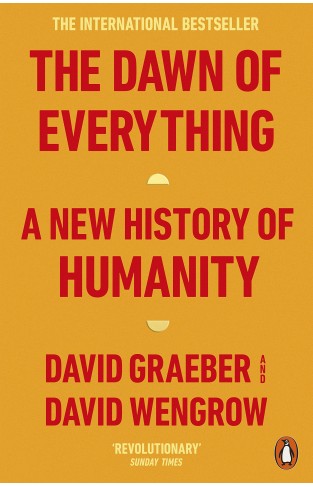
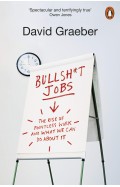
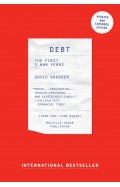
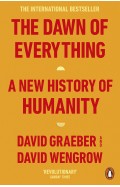
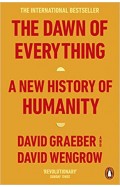
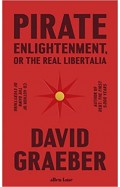
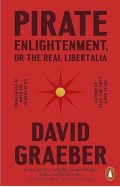

-120x187.jpg?q6)






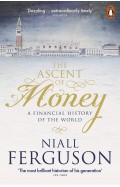
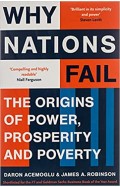

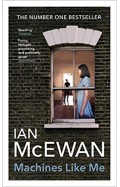

-120x187.jpg?q6)



-120x187.jpg?q6)



